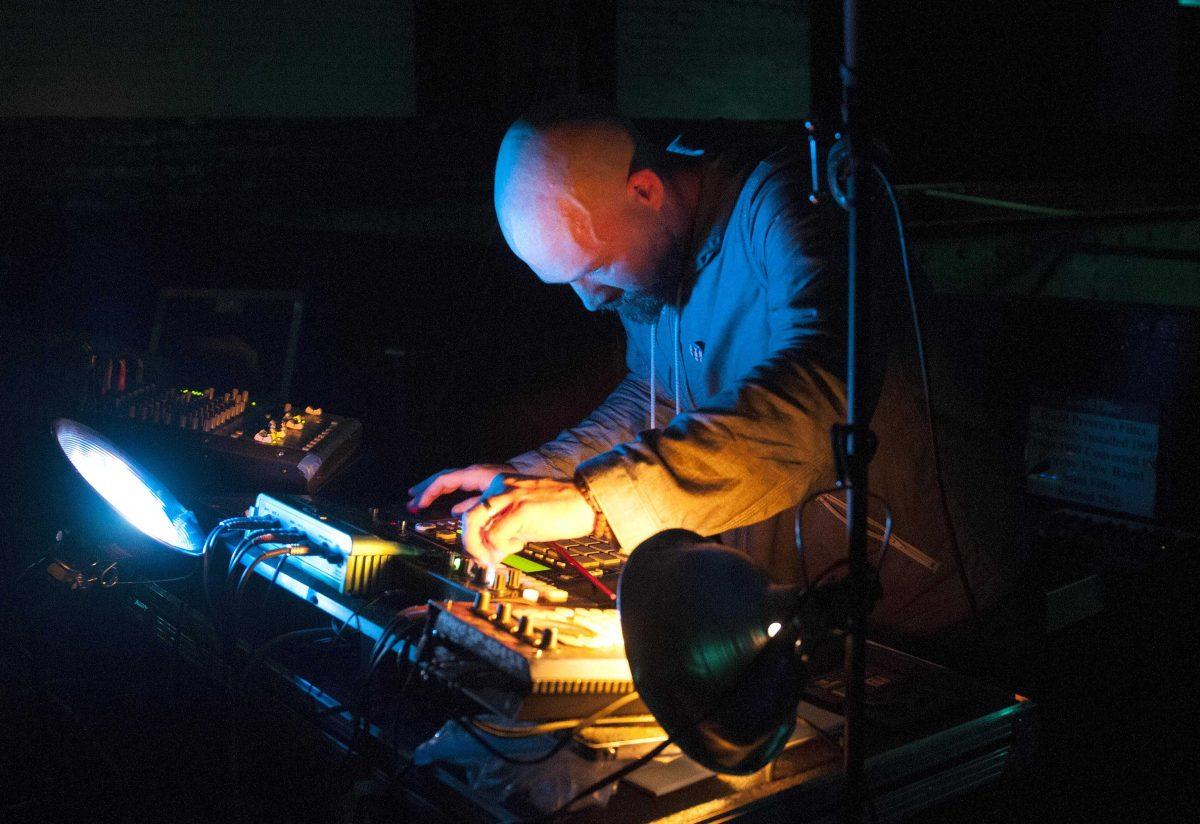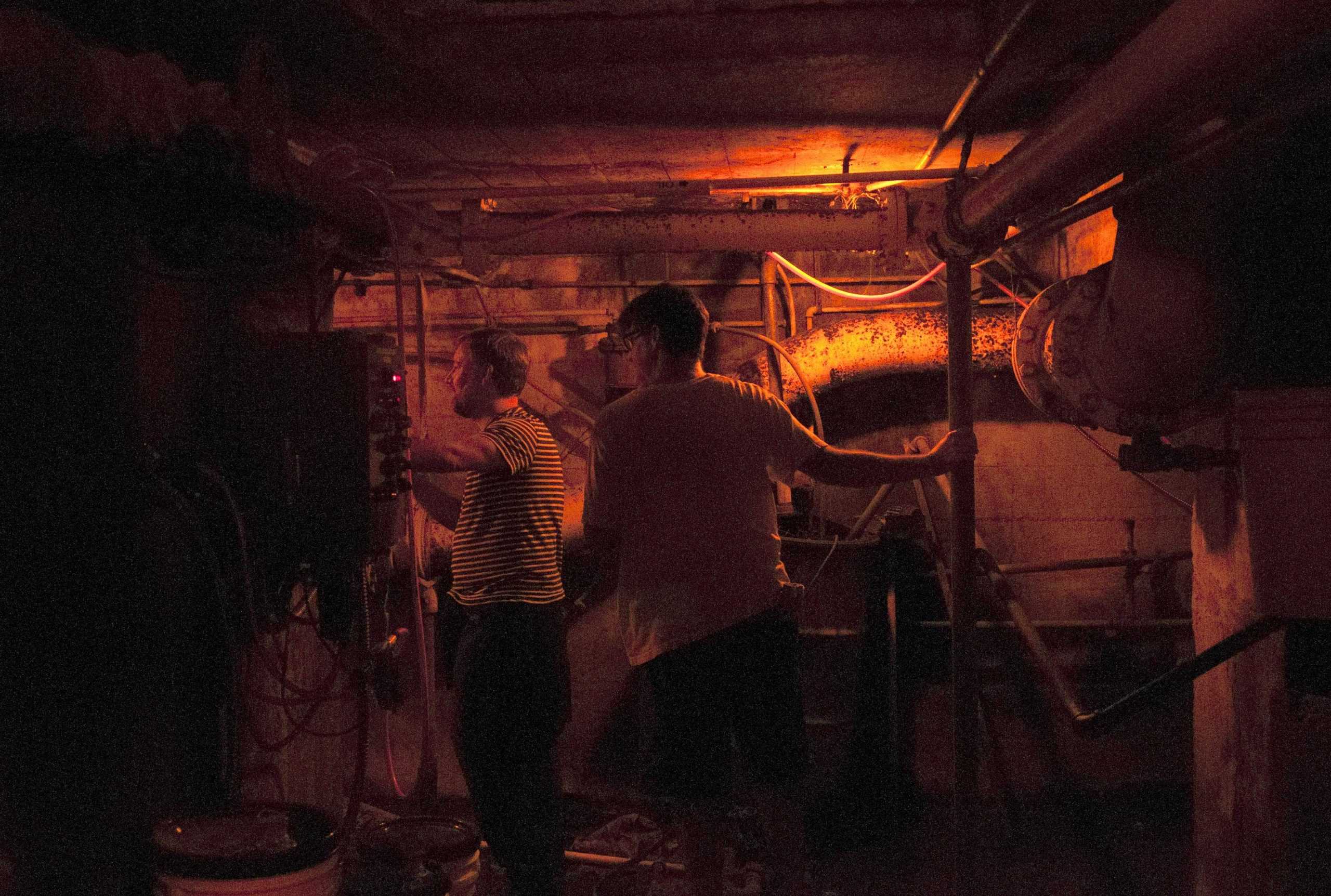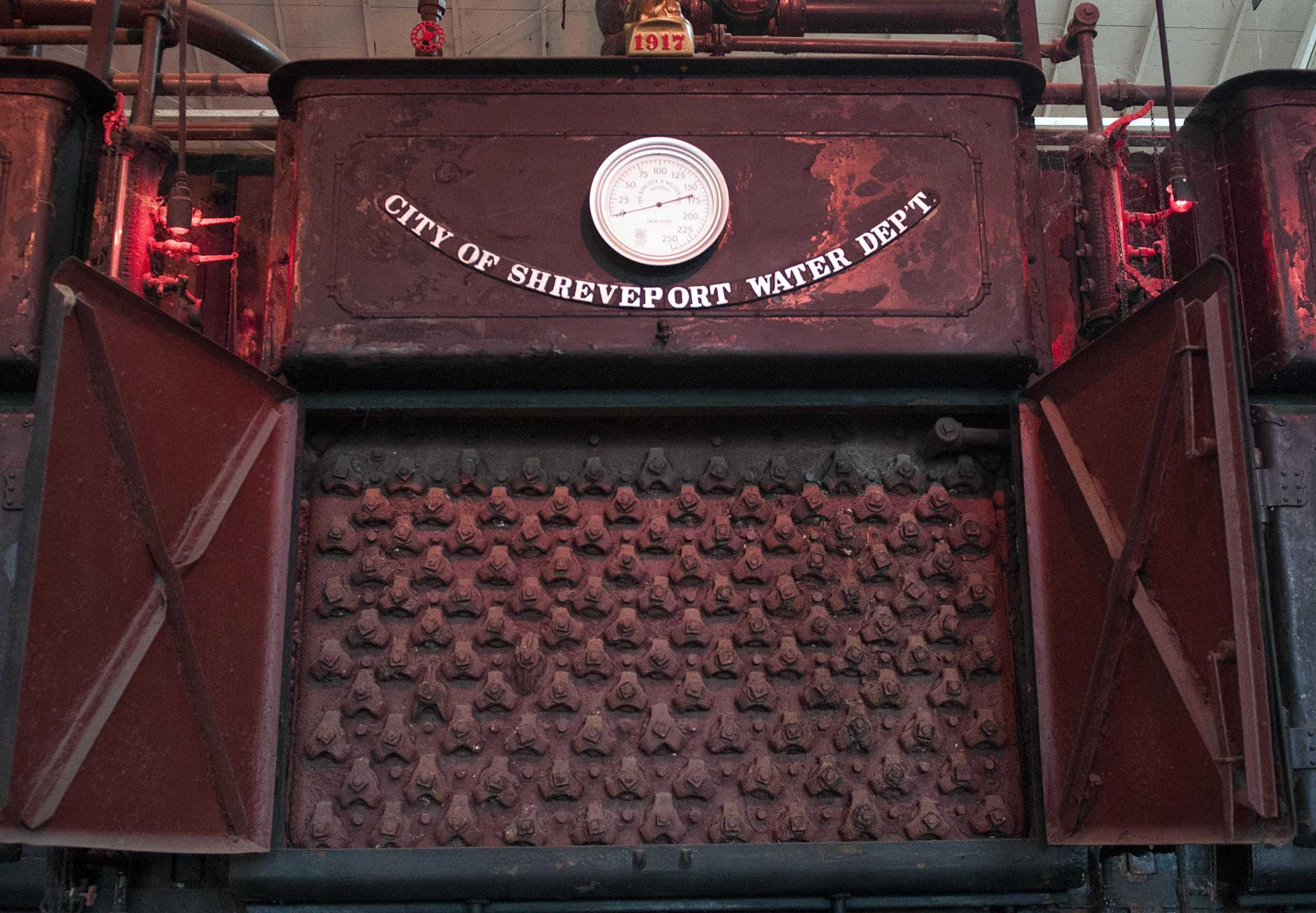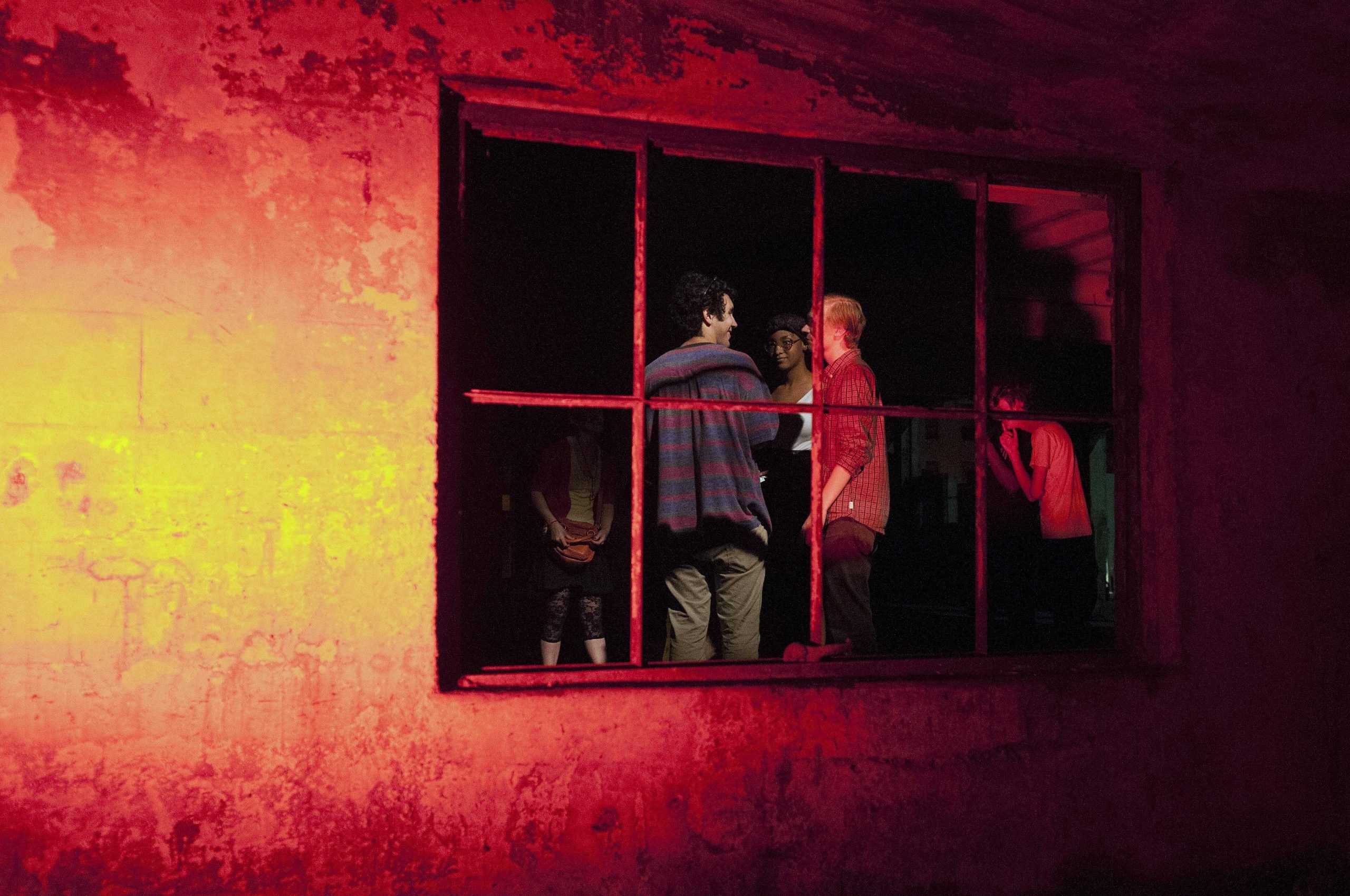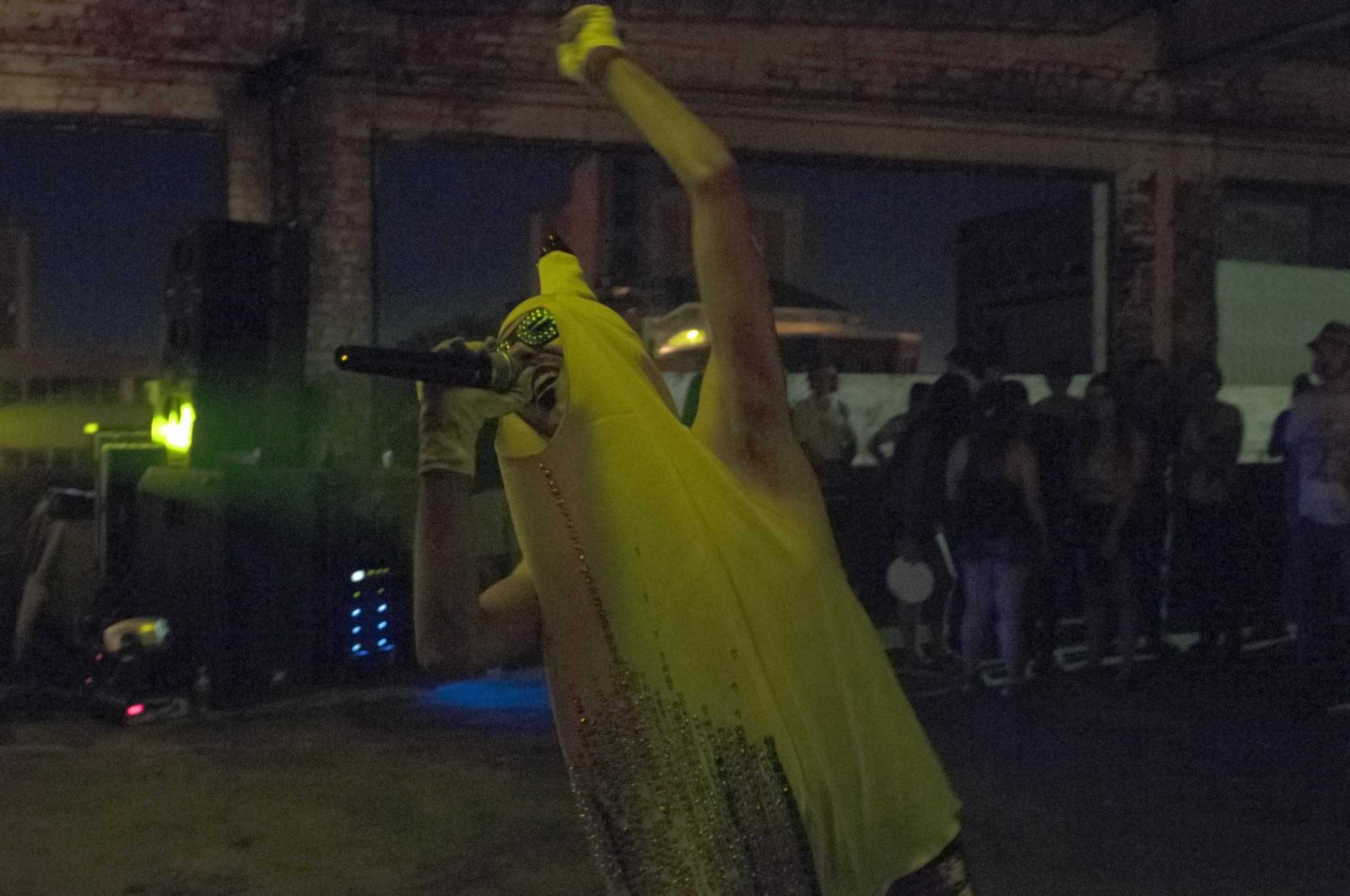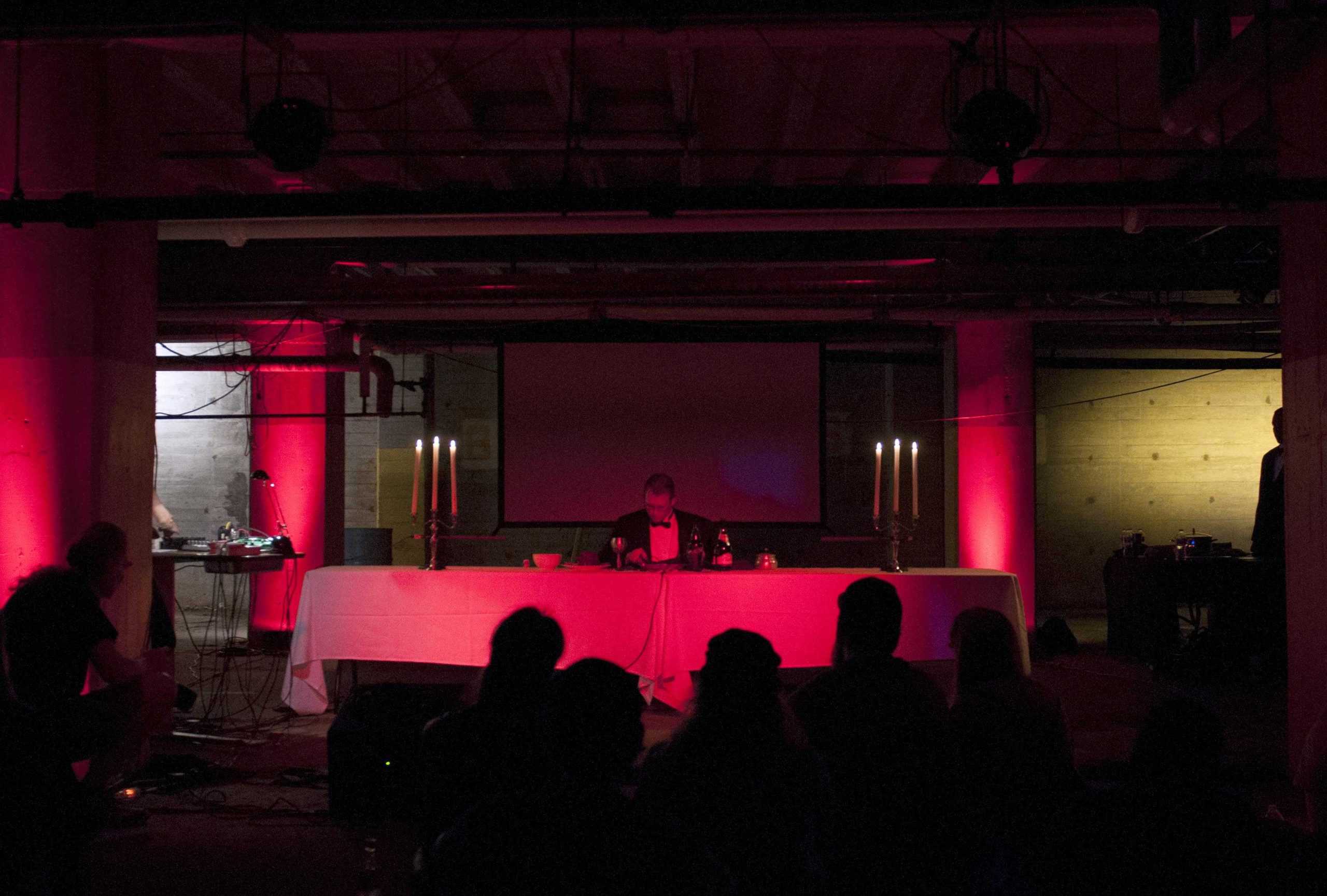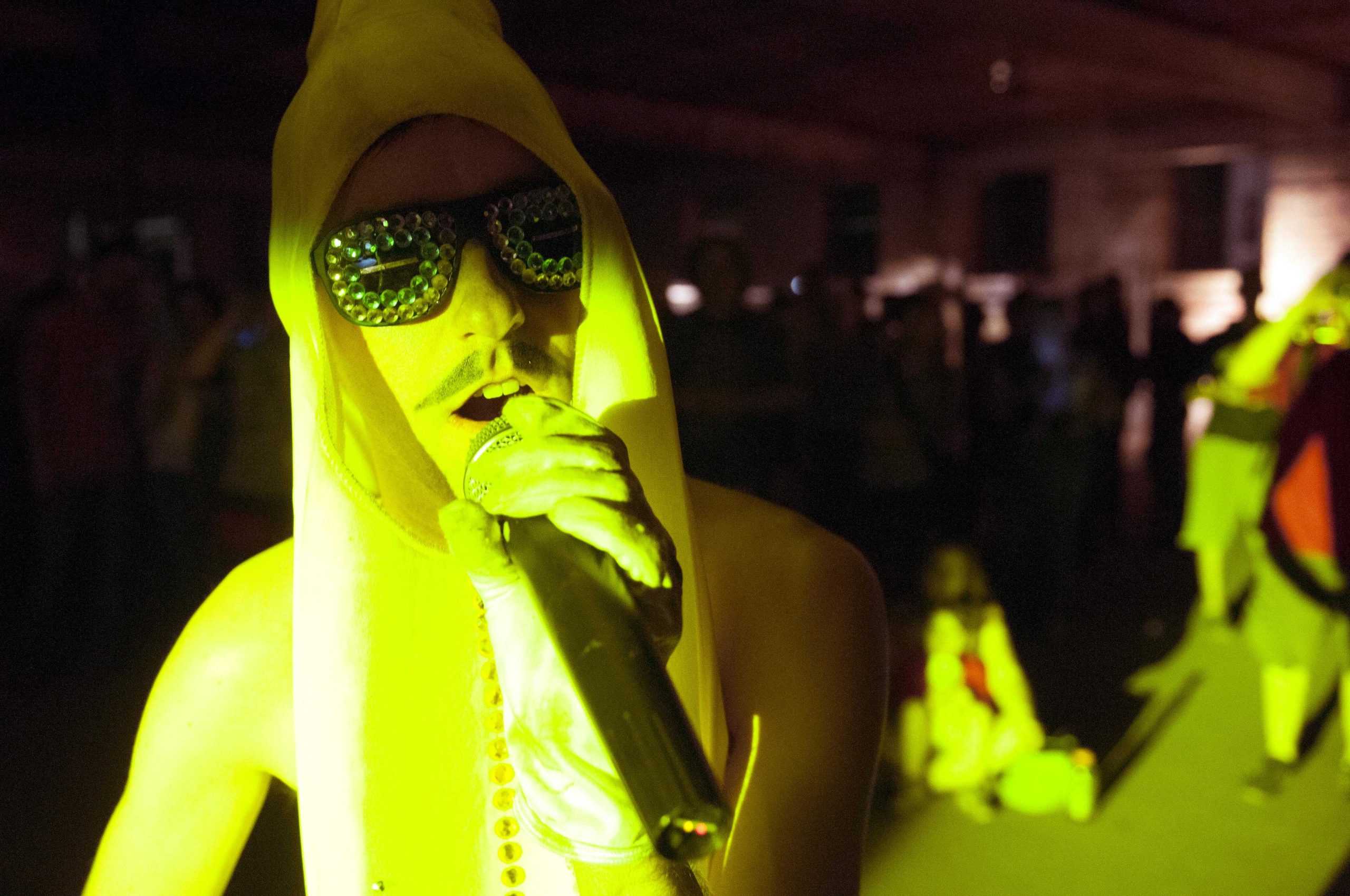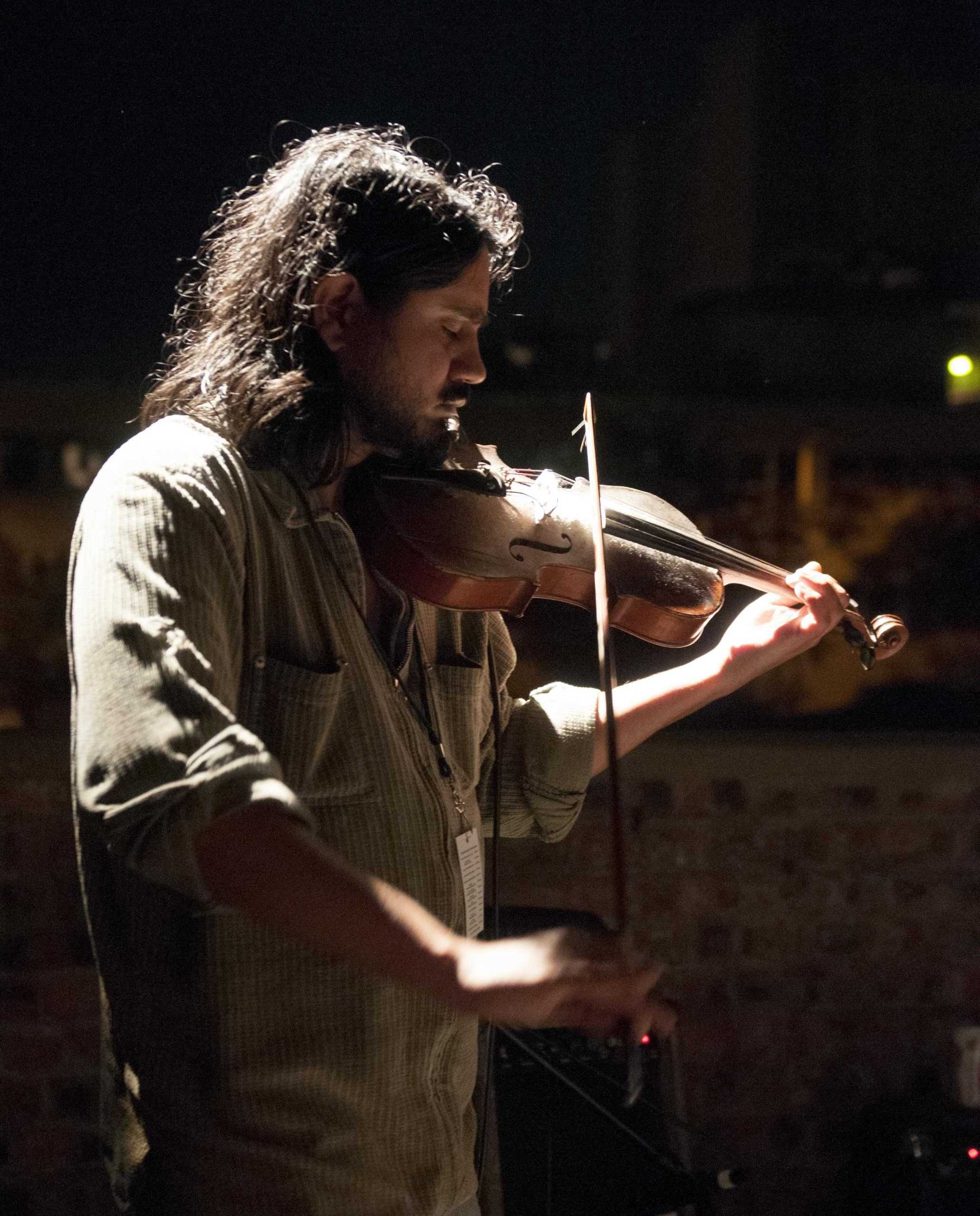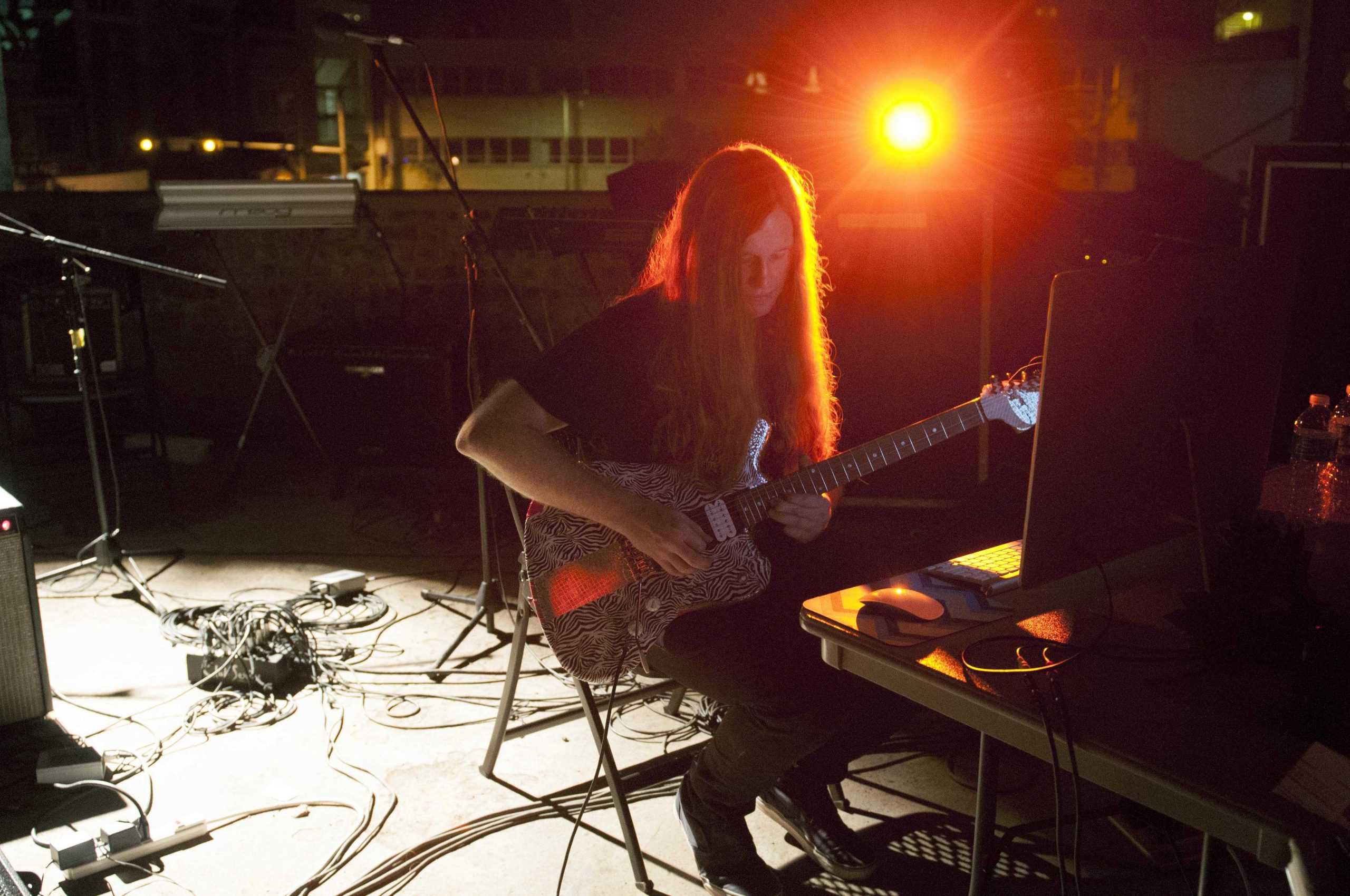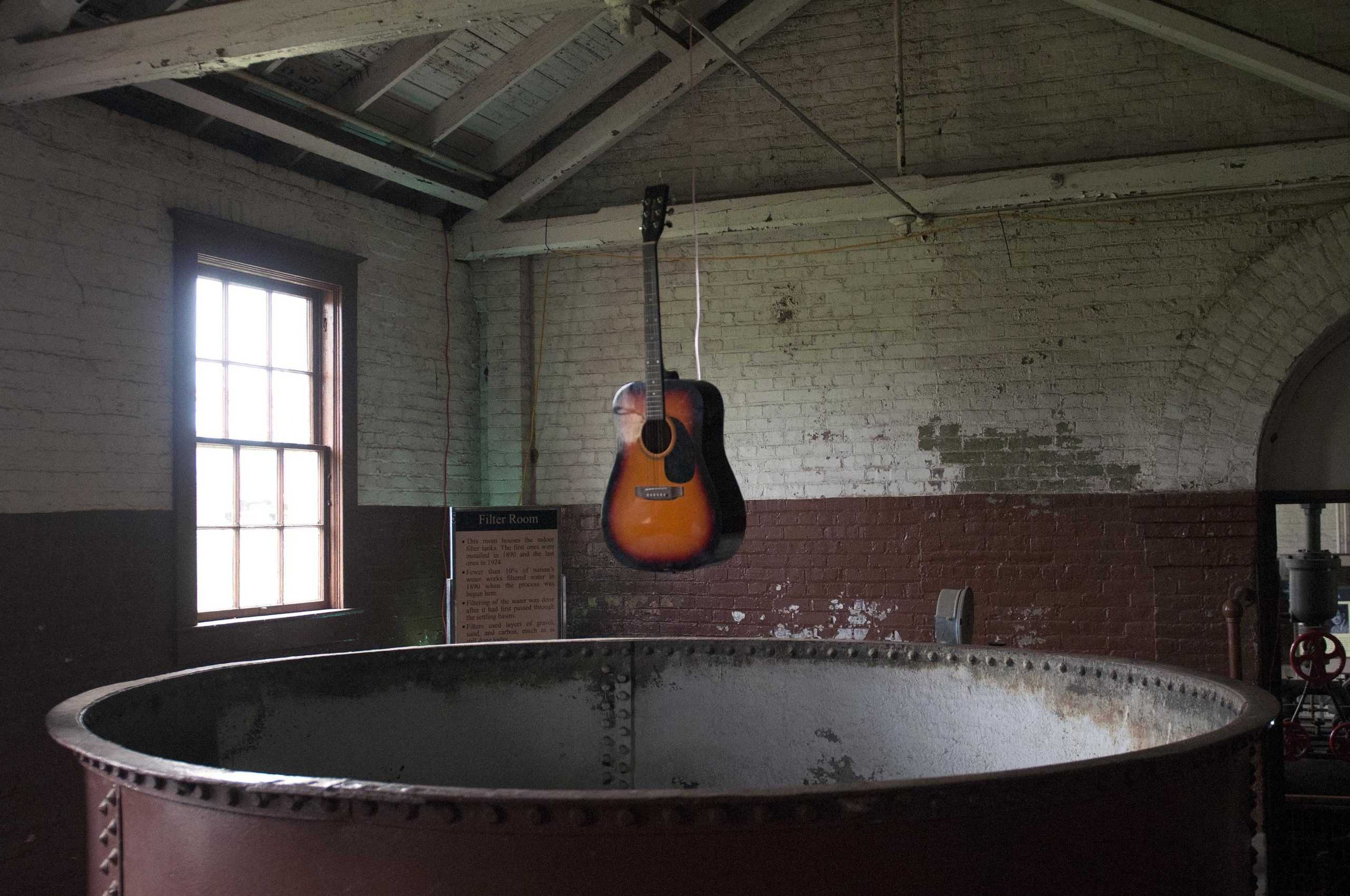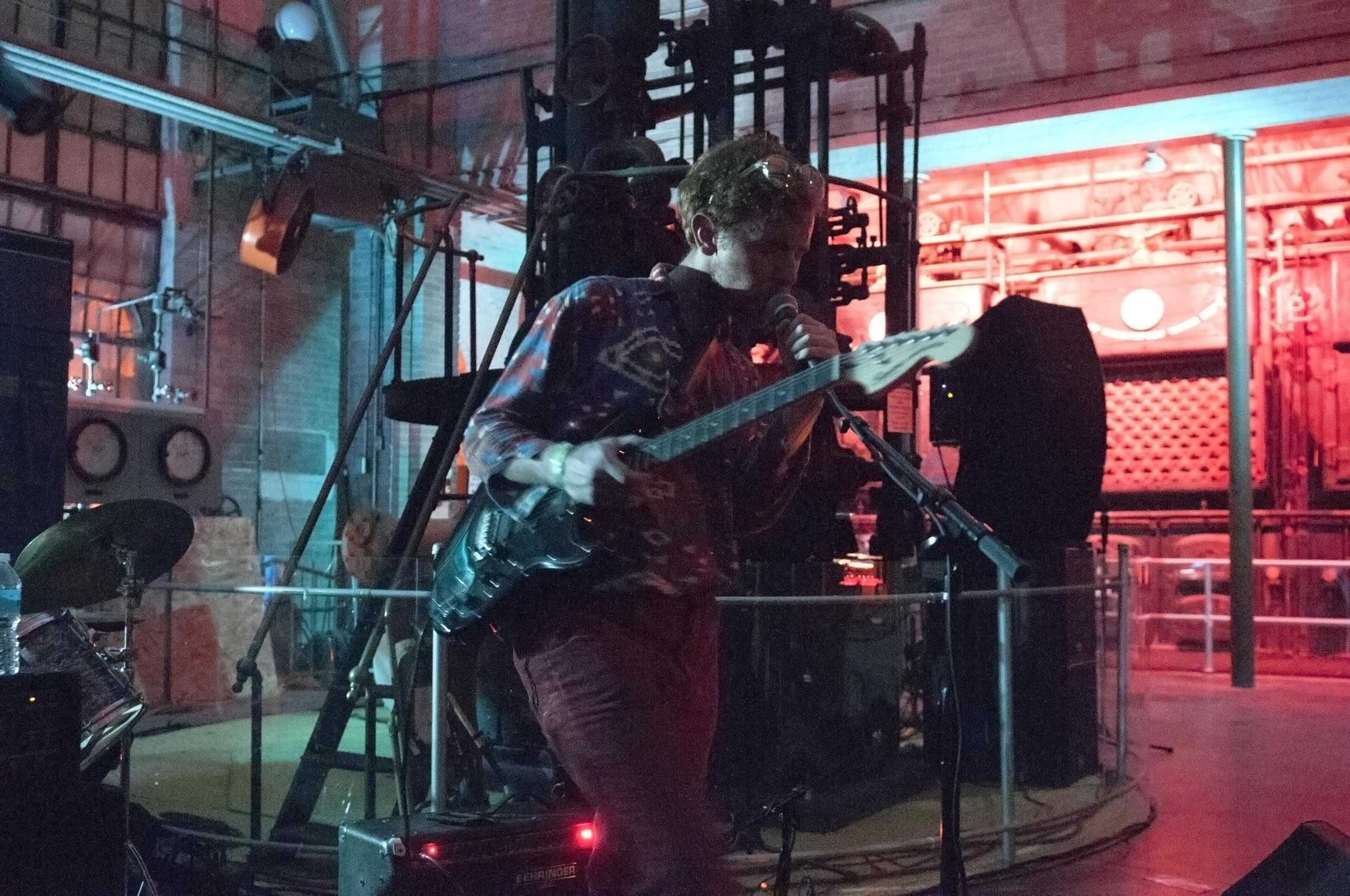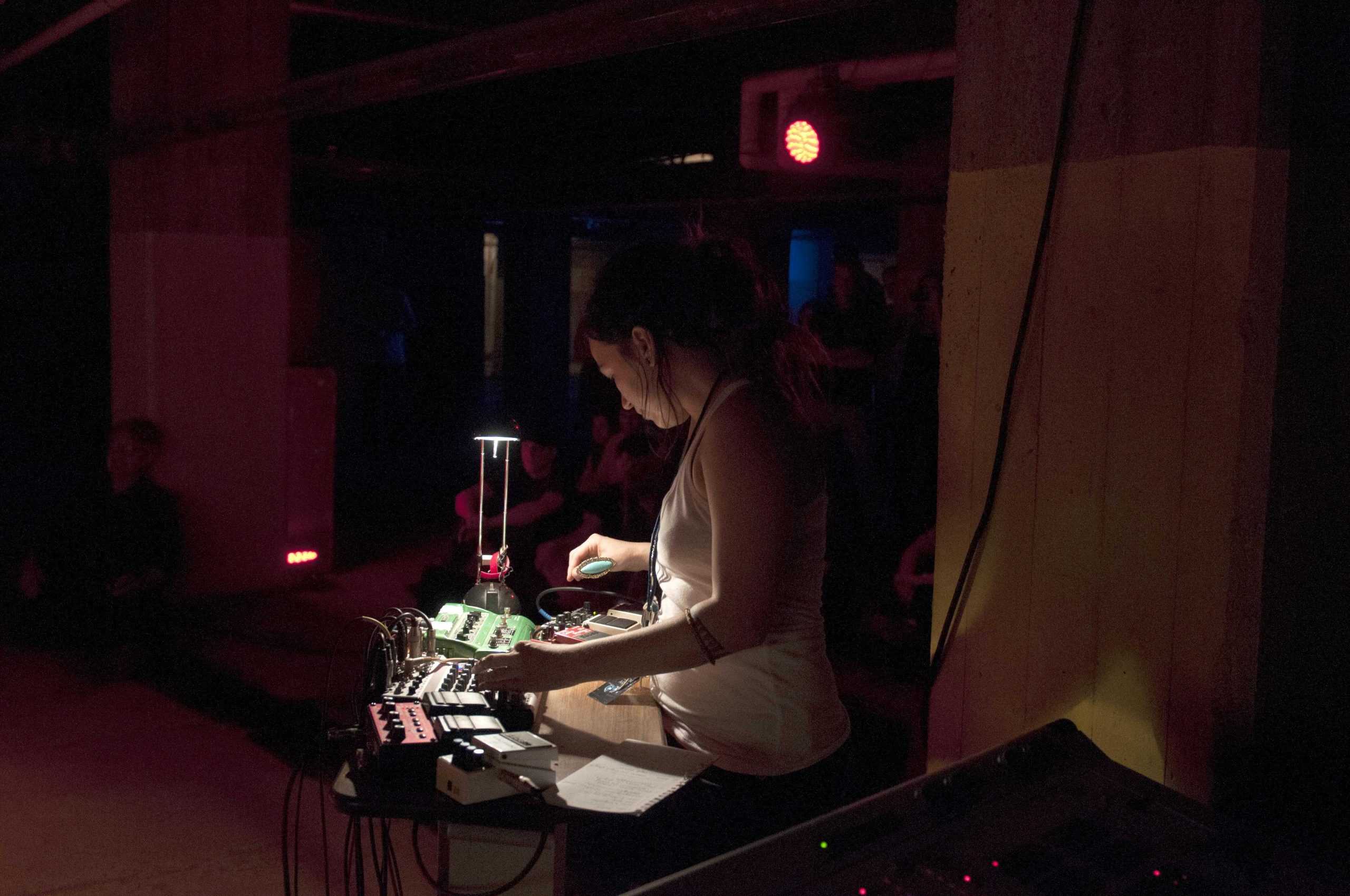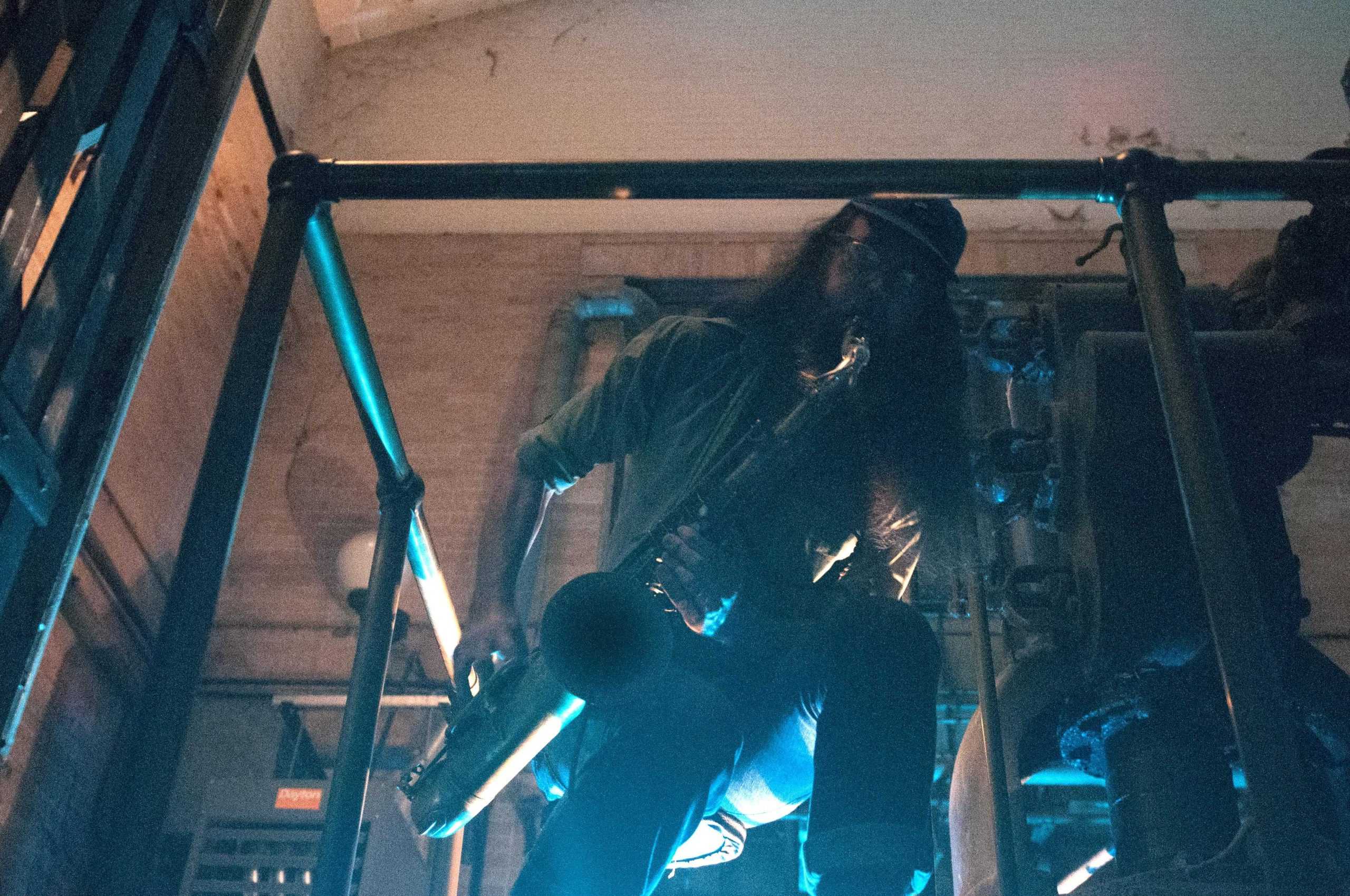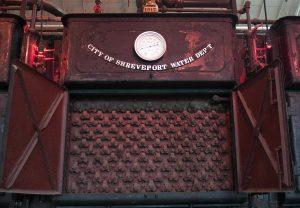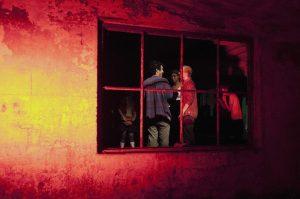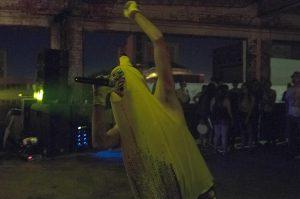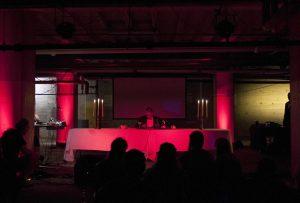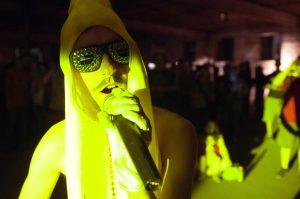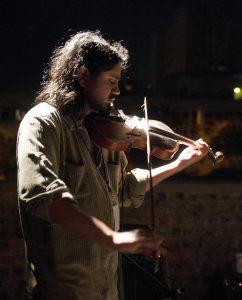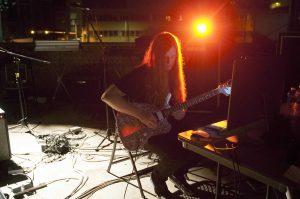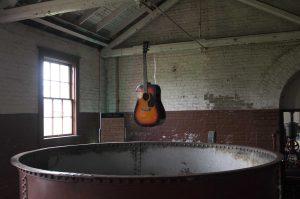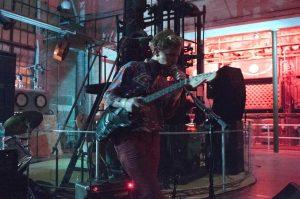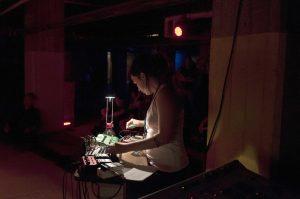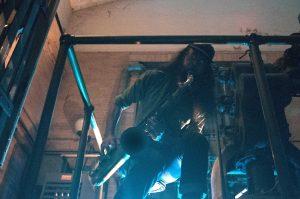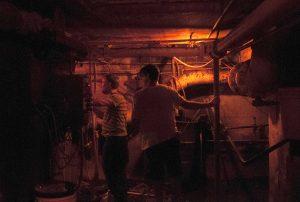The first day of the McNeil Street Pumping Station (MSPS) New Music Festival was held not at the historic landmark, but at a couple of parking garages and buildings in downtown Shreveport. The MSPS Prelude on Oct. 11, the night without a $20 cover, was as grassroots as an event can get.
It looked as though the festival took no effort, as if the community flocked there by instinct and that it could be packed away in a matter of minutes like nothing happened.
The biggest venue of the three, the abandoned Andress Ford garage, is a cavern of concrete held together by chain link fence. The crowd, made up of casually dressed locals and visitors (and one man in a glittery banana suit), ran up and down the ramp, past signs warning against pedestrian traffic. On both floors, each performance area was dwarfed by the abundance of space.
The brainchild of Shreveport native Robert Greenwood, fellow curator Robert Peterson and project coordinators April Dahm and David Nelson, bloomed from nothing in 2011, bringing in acts from around the world. The focus shifted this year, but the grassroots aesthetic stayed the same.
The second iteration of the local festival was, according to fliers, presenting the “New Media of the American South.” All preconceptions of the Southern music identity died as soon as the first notes pealed out, straining to be heard over the generators.
As the performances began, people formed thick semicircles of attention, some attempting to dance to the intense, electronically based sounds. It was touching to see the faithful attention of the audience, no matter how nonplussed they were by the admittedly non-traditional musical forms.
While the biggest venue hosted performances of the musical variety, a sound experiment was performed next door in the Fairmont parking garage. No one danced as performer Peter Fetterman sat in a tuxedo and served course after course of a wiretapped feast by a shadow-shrouded butler.
His every movement was magnified by microphones on the dishes, taped to his sleeves and his throat, even thrust in the corncobs and apples. It was riveting, and the crowd was confused, disgusted and fascinated in turns.
Not everything went as smoothly as Fetterman’s precise chomps and swigs. The generators serving the festival in lieu of electricity could not handle all of the equipment and lapsed several times, punctuating sets with periods of abrupt silence.
When the crowd filed out after midnight — after rapper Brooklyn White’s set with De La Mirdster — there was no way of predicting how the next night would go.
The second day of the MSPS New Music Festival dawned rainy and hot, but preparations in the old water processing station, completely closed since 1994 after a century of service, went on. Outside installations, including light shows to be projected on the facade of the station, had to be canceled, and vans shuttled festival-goers from their cars to the entrance.
Outside areas like picnic tables crowned with lanterns were abandoned to the drizzle, and only the brave shuffled out to smoke with the view of the dump next door in sight.
Partitions of the relic-heavy station were roped off to protect the crowd from floors rusted through and a step away from collapse in the main pumping room. People edged around rusty metal cylinders to see acts in the filter room. Dusty broken meters and cloudy windows were lit up by projected light shows, which were at least supported by electricity and not generators.
Curator Robert Greenwood said the choice of venue was intentional.
“We’re interested in ruin,” Greenwood said. “There’s so much of it here.”
The history of Shreveport is heavily connected to retired steam-powered water plant, he said.
According to Greenwood, he and the other organizers were ready face the challenges of a technically unsafe and unclean space, and that working with what the city had to offer was important to them.
The reaction of the audience reflected the same idea. Despite the rain, the generator lapses, the rust and the grime, a horde of people came out to sway to, screw up their faces at and take in the variety of acts, both local and foreign. Some of the more obscure sounds were received with respectful solemnity, while the later, more familiar-sounding performances were met with foot-tapping appreciation.
By the end of the festival, heralded by Monty Python’s “Always Look On the Bright Side of Life” over the loudspeakers, I could say I had never felt more engaged and connected to a group of people as I did during this strange, heartfelt tribute to the American South.
Generators, laptops and spare music equipment brought together in such ruinous spaces shouldn’t be as magical as this festival was. In two years, the MSPS New Music Festival will set up again in the old plant, and there’s no telling what experience it will give Shreveport next.
Samantha Bares is a 20-year-old English junior from Erath, La.
MSPS New Music Festival redefines the festival-going experience
October 14, 2013
Atlanta musician Christopher White performs as Magicicada on Saturday night, Oct. 12, 2013 at the McNeill Street Pumping Station New Music Festival in downtown Shreveport, Louisiana.


